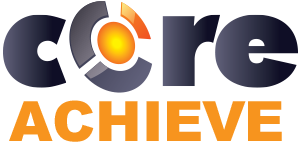Leveraging an LMS for Compliance Training in Highly Regulated Industries
June, 15 2023
Other posts:
Enhancing Team Dynamics for Effective Group Decision-Making with LMS Integration
Organizations increasingly rely on collaborative efforts to solve complex problems, innovate, and adapt to change, but how do we ensure that collaboration is happening.
Maximizing Small Business Potential with Training Technology
Training technologies can push small businesses ahead of their competitors, but what are the factors that go into choosing the right technology?
Unlocking Employee Potential: The Transformative Benefits of an Interactive Learning Management System (LMS)
Interactive training allows for unlocking employee potential, but how is it done?
Building a Robust Sales Pipeline with Training
Every organization wants a streamlined sales pipeline, but building one requires a series of interlocking activities with one of the most important being training.
Strategies for Adapting In-Person Training to Online Platforms
Online training is one of the most flexible ways of delivering training across organizations, but how do you even begin to adapt in-person training into online?
Regulations are important for the safety of workers, customers, and organizations. However, they can get very complicated quickly. A Learning Management System (LMS) can help organizations keep track and updated on regulations.
In highly regulated industries such as healthcare, finance, and pharmaceuticals, compliance training plays a critical role in ensuring legal adherence, maintaining industry standards, and mitigating risks. Organizations operating in these industries face the challenge of keeping up with evolving regulations while efficiently training their workforce. This is where Learning Management Systems (LMS) come into play.
An LMS can help enforce these regulations by having an easy-to-update platform, keeping records of employees’ completion, and consistent, universal delivery.
Centralized Training Management
Compliance training involves extensive documentation and tracking of employee training records. An LMS provides a centralized platform for managing compliance training programs, enabling organizations to streamline training administration, monitor progress, and ensure consistent documentation. With an LMS, organizations can easily track training completion, generate reports, and demonstrate compliance during audits or regulatory inspections.
Customizable Training Programs
Highly regulated industries often require specific training content tailored to the organization's policies, procedures, and industry regulations. An LMS allows organizations to create customizable training programs to address their unique compliance needs. Organizations can develop interactive modules, videos, quizzes, and assessments that align with the specific regulatory requirements of their industry. Customizable training programs ensure that employees receive the necessary knowledge and skills to comply with regulations relevant to their roles.
Scalable and Consistent Training Delivery
In industries with a large and geographically dispersed workforce, delivering consistent compliance training can be challenging. An LMS provides a scalable solution, allowing organizations to deliver training to employees across different locations and time zones. Through the LMS, employees can access training materials anytime, anywhere, ensuring consistent delivery of compliance training programs. This eliminates the logistical constraints of organizing in-person training sessions and ensures that all employees receive the same training content.
Automated Compliance Tracking
Tracking compliance training completion manually can be time-consuming and prone to errors. An LMS automates the tracking and reporting process, providing real-time visibility into employees' training progress. Automated reminders and notifications can be set up within the LMS to ensure employees stay on track with their compliance training requirements. This automation simplifies compliance tracking, reduces administrative burden, and ensures that no employee falls behind on their training obligations.
Ongoing Training and Updates
Regulations and compliance requirements in highly regulated industries are subject to frequent updates and changes. An LMS facilitates ongoing training and updates by providing a platform to deliver timely information to employees. Organizations can use the LMS to communicate policy changes, regulatory updates, and industry best practices. This ensures that employees stay up to date with the latest compliance requirements and fosters a culture of continuous learning and compliance awareness.
Assessment and Reporting Capabilities
Compliance training effectiveness hinges on employees' understanding and retention of the training material. An LMS enables organizations to incorporate assessments, quizzes, and knowledge checks to evaluate employees' comprehension of compliance concepts. By tracking assessment results, organizations can identify areas where employees may require additional training or support. Comprehensive reporting features in an LMS allow organizations to generate compliance training reports, demonstrating adherence to regulatory requirements, and facilitating internal and external audits.
In highly regulated industries, compliance training is essential for ensuring legal compliance, mitigating risks, and maintaining industry standards. Leveraging an LMS for compliance training offers numerous benefits, including centralized training management, customizable training programs, scalable and consistent training delivery, automated compliance tracking, ongoing training and updates, and assessment and reporting capabilities. By harnessing the power of an LMS, organizations in highly regulated industries can effectively train their workforce, stay compliant with industry regulations, and mitigate risks, ultimately ensuring a culture of compliance and safeguarding their reputation.
Get started with CoreAchieve today for free.
Photo by Cristin Hume on Unsplash

Leave comment: